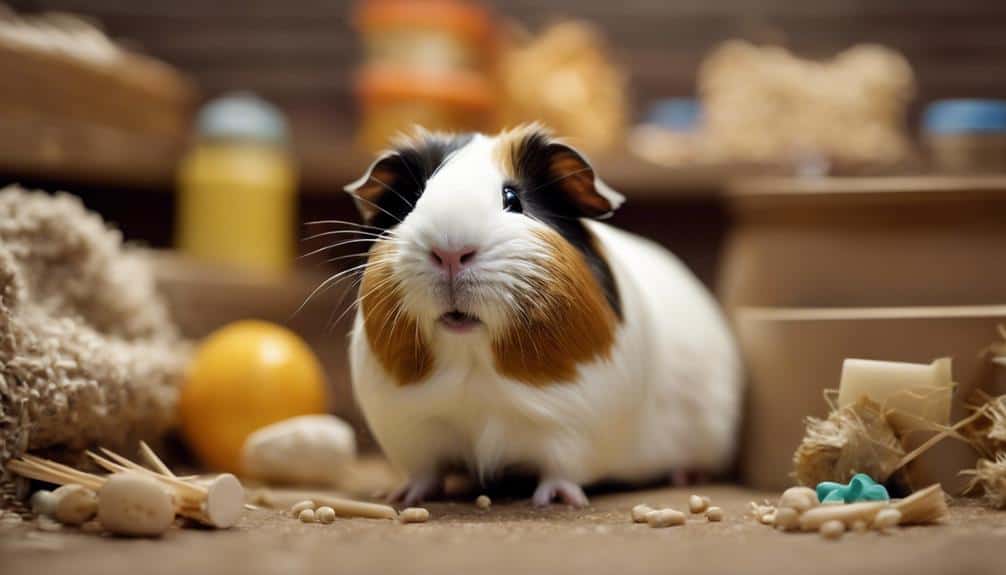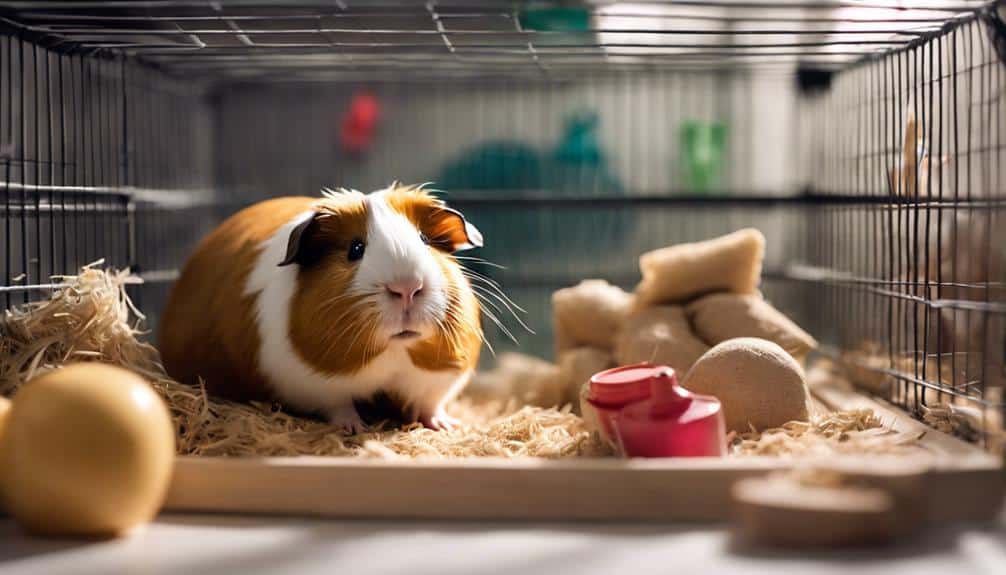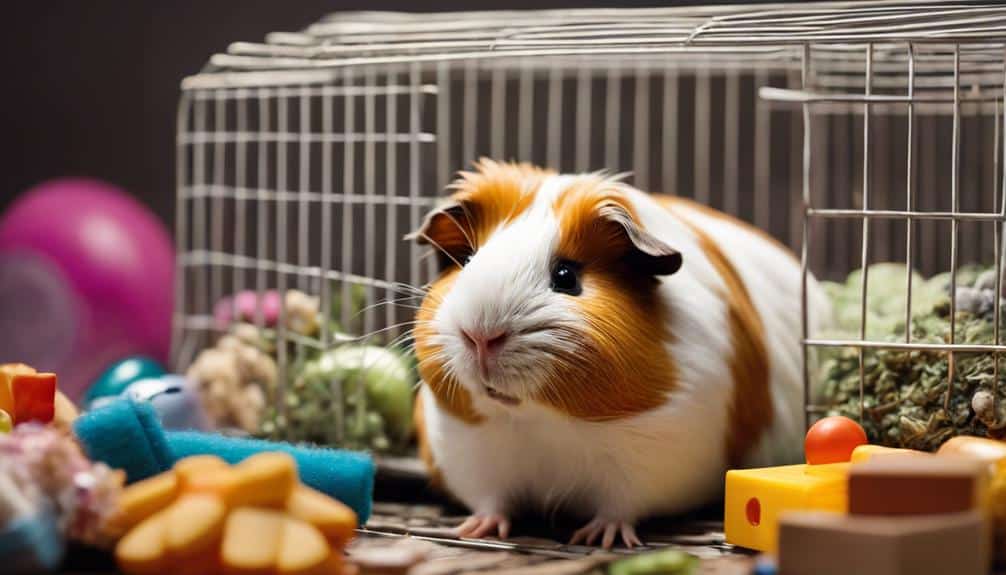How Much a Guinea Pig Costs: A Comprehensive Guide
When considering the cost of owning a guinea pig, one might not realize that expenses go beyond just purchasing the pet itself. From initial setup to ongoing maintenance, the financial commitment can vary widely.
Understanding these expenses is essential for responsible pet ownership. Let’s explore the intricacies of guinea pig costs and discover practical tips for managing them efficiently.
Initial Costs of Guinea Pig Ownership
When starting on the journey of having a guinea pig, it’s essential to carefully consider the initial costs involved to make a proper and comfortable setup for your new furry companion. Guinea pig costs for the initial setup can vary from $100 to $550, encompassing important items such as a suitable cage, bedding, food, and water bottles.
These expenses aren’t just financial responsibilities but investments in the well-being of your pet, ensuring they’ve a comfortable living environment. A suitable cage is fundamental, providing ample space for your guinea pig to move around and engage in natural behaviors. Bedding is essential for creating a cozy and clean living area, while food and water bottles are necessary for their nutritional needs.
Understanding and budgeting for these initial costs are crucial steps in responsible pet ownership, guaranteeing that your guinea pig has a healthy and happy home from the start.
Ongoing Expenses for Guinea Pigs
Moving forward from the initial costs of guinea pig ownership, it’s important to contemplate the ongoing expenses associated with caring for these delightful pets. Here are some key financial considerations to keep in mind:
- Annual Food Expenses: Feeding two guinea pigs can cost between $250 to $350 per year, depending on the quality of food you choose to provide for your furry friends.
- Monthly Bedding Costs: Opting for fleece liners for bedding can incur monthly expenses ranging from $20 to $30. Investing in quality bedding is essential for maintaining the hygiene and comfort of your guinea pigs.
- Yearly Healthcare Costs: The average yearly healthcare expenses for two guinea pigs amount to around $60. It’s important to budget for routine vet check-ups and be prepared for unexpected medical costs that may arise to guarantee the well-being of your pets.
Yearly Budget for Guinea Pig Care

To effectively budget for the yearly care of guinea pigs, it’s important to take into account both their nutritional needs and potential healthcare expenses. Guinea pigs cost an average of $1,225 annually, with food expenses comprising a significant portion. Proper guinea pig care involves providing a diet of hay, vegetables, pellets, and water, which can amount to around $840 per year.
Additionally, yearly healthcare costs, including vet bills and the possibility of emergency vet visits, should be considered when planning the annual budget for guinea pig care. Financial preparedness is key to ensuring that these furry companions receive the necessary medical attention when required.
Healthcare Costs for Guinea Pigs
Considering the annual budget for guinea pig care, it’s important to understand the potential healthcare costs involved in maintaining the well-being of these small pets. When budgeting for healthcare, it’s essential to account for various expenses related to veterinary care, common health issues, and routine check-ups. Here are some key points to take into account:
- Annual Healthcare Costs: Budget between $50 to $500 per year for healthcare expenses, including routine vet visits, vaccinations, and emergency care.
- Routine Vet Visits: Expect to pay around $40 to $70 per consultation, excluding any additional treatments or medications your guinea pig may require.
- Dental Care: Dental procedures such as teeth trimming can cost between $10 to $50 per session, depending on the complexity of the procedure and the veterinarian’s fees.
Tips for Cost-Effective Guinea Pig Ownership

Researching and comparing prices before purchasing supplies can greatly reduce the overall cost of owning a guinea pig. Buying items like hay and bedding in bulk can help lower monthly expenses. Considering do-it-yourself (DIY) alternatives for toys and cage accessories can also decrease initial setup costs.
Monitoring your guinea pigs’ health regularly is crucial to prevent costly medical issues and emergency vet bills. Seeking advice from experienced guinea pig owners or veterinarians can provide valuable cost-saving tips for caring for your pets. By being mindful of these cost-effective strategies, you can enjoy the companionship of your guinea pigs without breaking the bank.
Conclusion
To sum up, owning a guinea pig can be a rewarding experience, but it’s important to be aware of the financial responsibilities involved. By budgeting for initial setup costs, ongoing expenses, and healthcare needs, you can guarantee your furry friend lives a happy and healthy life.
Remember, a penny saved is a penny earned, so be sure to shop smart and prioritize your guinea pig’s well-being.
Happy piggy parenting!







